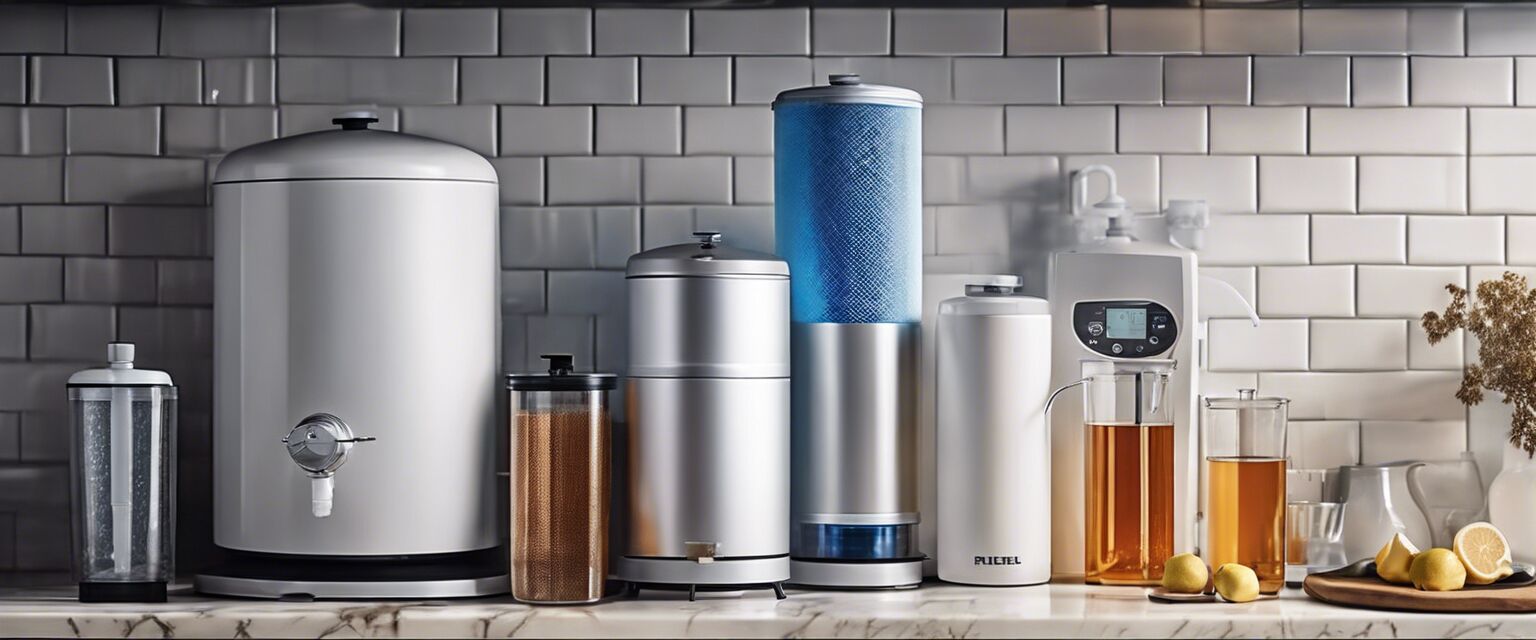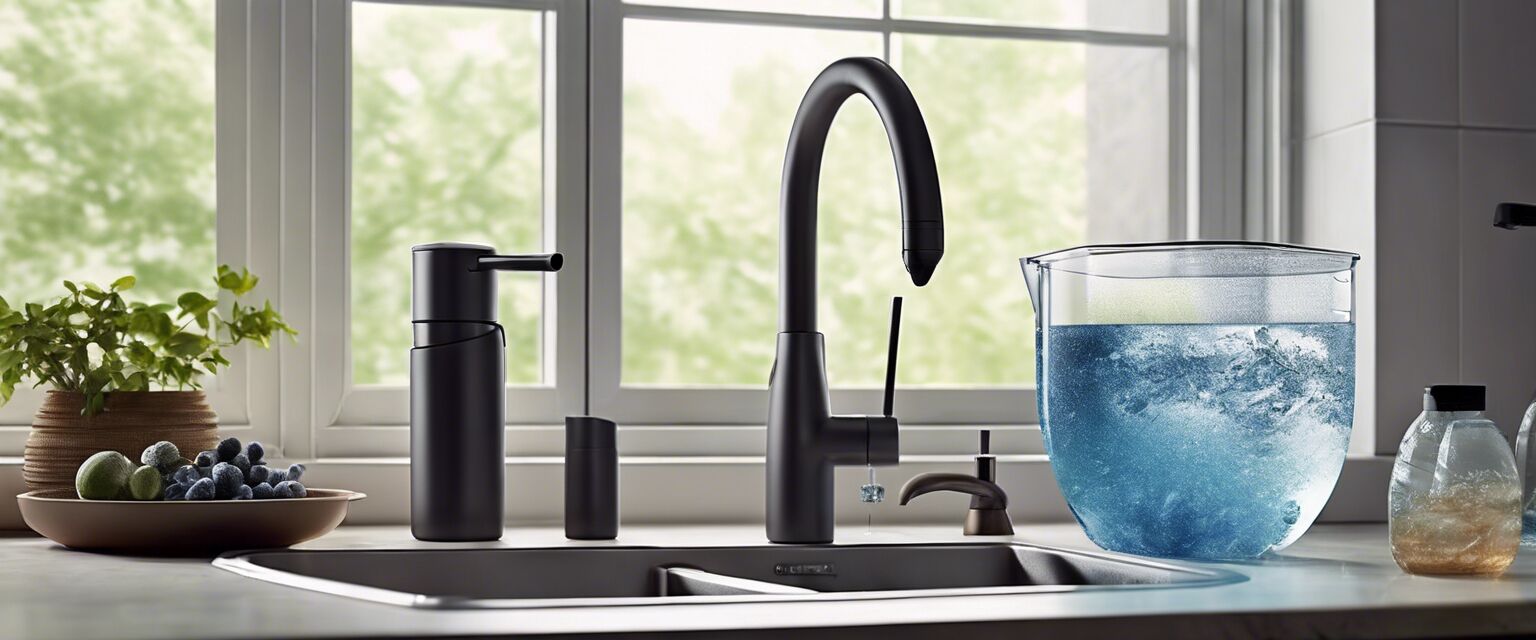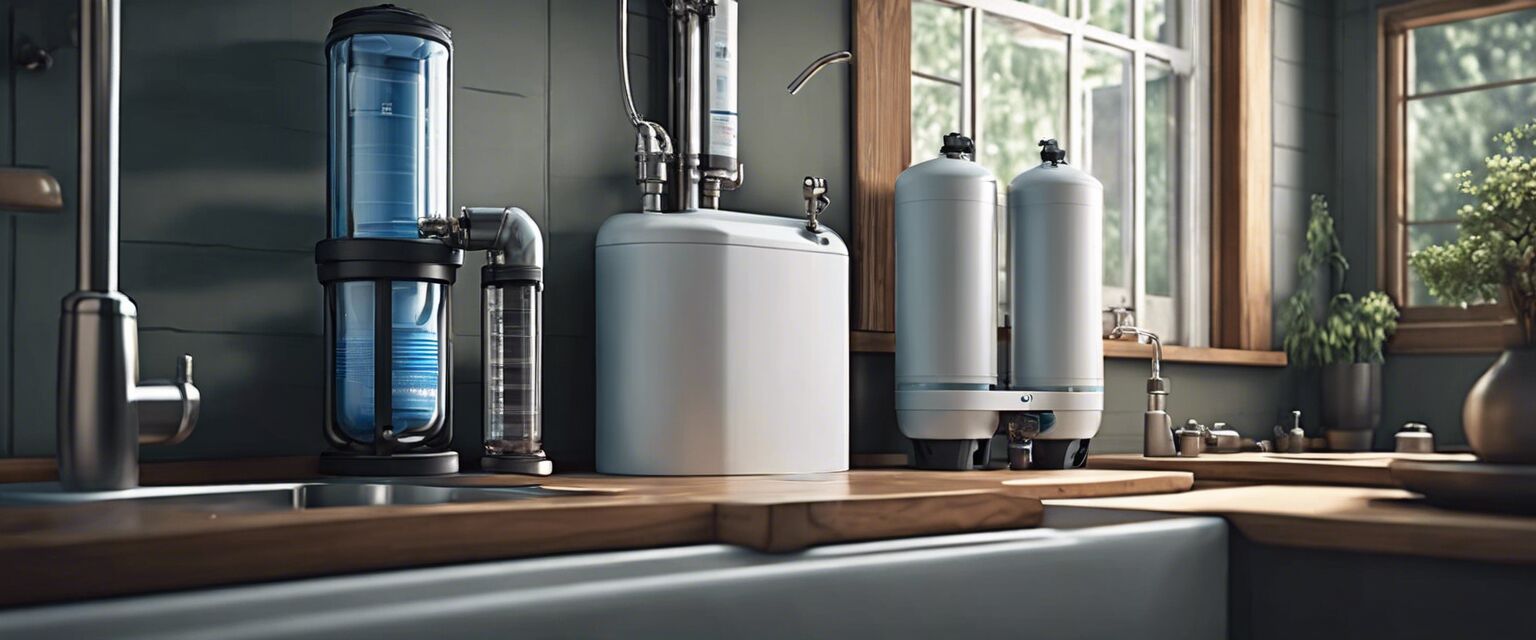
Benefits of Water Filters
Key Takeaways
- Water filters improve the taste and quality of drinking water.
- They can reduce contaminants, providing safer drinking water.
- Investment in water filters is cost-effective compared to bottled water.
- Different types of water filters cater to various household needs.
In today's world, access to clean and safe drinking water is more crucial than ever. With contaminants lurking in our water supply, the demand for effective filtration systems has surged. This article delves deep into the benefits of water filters, covering both health and economic aspects. We will explore different types of water filters, why they are essential, and how they can improve your quality of life.
What are water filters?
Water filters are devices designed to remove impurities and contaminants from drinking water. They work by using various methods such as mechanical filtration, adsorption, and chemical processes, ensuring the water you consume is clean and safe. Water filters can range from simple pitcher filters to highly advanced whole house filtration systems.
Types of water filters
There are several types of water filters available, each catering to specific needs:
| Type of Filter | Description | Best for |
|---|---|---|
| Portable water filters | Compact, easy to use, usually for outdoor activities. | Camping and travel. |
| Water purifiers | Advanced systems that eliminate viruses and bacteria. | Home use, especially in areas with unsafe water. |
| Whole house water filters | Installed at the main water line, filters water for the entire home. | Families needing comprehensive filtration. |
| Water filter cartridges | Replaceable cartridges used in water filtration systems. | Maintenance for existing filtration systems. |
Health benefits of using water filters
Investing in a water filter can lead to numerous health-related benefits. Here are some key advantages:
- Removes harmful contaminants: Many water filters effectively remove harmful substances such as lead, chlorine, and pesticides that can compromise health.
- Improves taste and odor: Filters eliminate unpleasant tastes and smells, making drinking water more enjoyable.
- Supports hydration: Clean, filtered water encourages individuals to drink more water, promoting better hydration.
- Potentially reduces health risks: With cleaner water, the risk of waterborne illnesses can be mitigated.
Economic benefits
Beyond health, water filters also present an economic advantage. Hereâs how:
- Cost-effective: While bottled water can be expensive, investing in a home filtration system can save money over time.
- Reduced plastic waste: Using water filters eliminates the need for bottled water, thereby decreasing plastic consumption and helping the environment.
- Increased property value: Having a whole house water filtration system may enhance your homeâs resale value, appealing to potential buyers.
How to choose the right water filter
Selecting the appropriate water filter depends on various factors, including water quality, household needs, and budget. Consider the following when making your choice:
- Conduct a water quality test to identify contaminants.
- Determine the type of filtration system that fits your needs (home, portable, etc.).
- Evaluate the costs involved, including installation and maintenance.
- Read customer reviews and ratings to find reliable products.

Common misconceptions about water filters
Many consumers have misconceptions about water filters. Letâs clarify a few:
- All filters are the same: Different filters have varied capabilities; not all remove the same contaminants.
- Filtered water is unnecessary: Many people underestimate their exposure to pollutants in tap water, which makes filtration vital.
- They require a lot of maintenance: Most modern filters are easy to maintain and come with straightforward instructions.
Pros
- Improves water quality and taste.
- Cost-effective in the long run.
- Promotes healthier living.
- Environmentally friendly.
Cons
- Initial investment can be high for some systems.
- Regular replacement of filters is necessary.
- Not all filters remove all contaminants.
Conclusion
Water filters provide a multitude of health and economic benefits. By ensuring access to clean and safe drinking water, they not only enhance overall well-being but also contribute to cost savings and environmental protection. Investing in a quality water filter is a step towards better health and sustainability.
Tips for beginners
- Start with a basic pitcher filter if you're unsure about investing in more complex systems.
- Consult a water quality expert for specific needs and recommendations.
- Educate yourself on local water quality issues and choose a filter accordingly.
If you're interested in exploring different types of filters, check out our [Portable water filters](https://waterandautomobilefilters.com/products/portable-water-filters), [Water purifiers](https://waterandautomobilefilters.com/products/water-purifiers), and [Whole house water filters](https://waterandautomobilefilters.com/products/whole-house-water-filters) to find the best option for your household.

